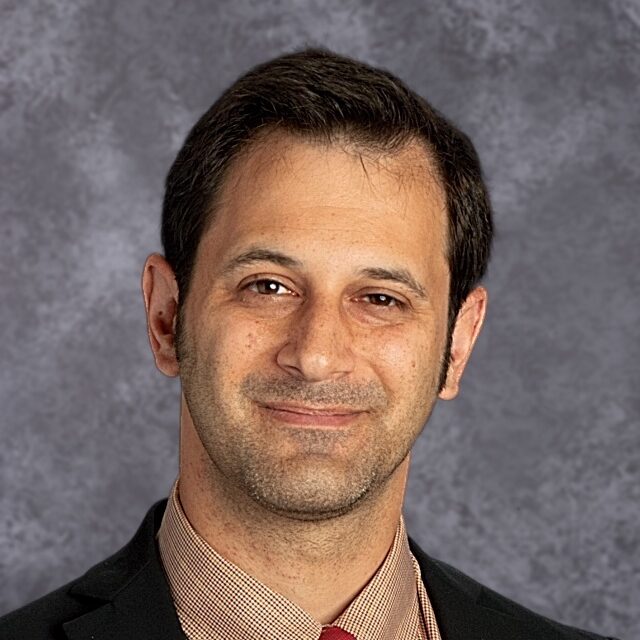On the first day of A.P. Language and Composition (popularly known as “A.P. Lang”), I’ve taken to asking my classes a few simple questions: 1) Why did you enroll in this class? 2) What is A.P. Lang all about? and 3) What’s the difference between this class and A.P. Literature and Composition (the other of the two A.P. English courses, better known as “A.P. Lit”)?
My purpose isn’t to mock or to expose ignorance: I’m asking these questions in good faith, and I use the answers to segue into a conversation about curriculum. Still, the answers, which basically amount to a collective shoulder shrug, are surprising: I enrolled because my teacher recommended me. Because I want to take three A.P. classes. Because I had you for freshman English and I wanted to take your class again. Because I’ve heard this class has a lot of writing but not too much reading. Because I’ve heard this class has a lot of reading but not too much writing. Because I’ve heard it’s pretty easy.
Far be it from me to criticize a kid for wanting to take a class because he’s heard it’s easy (even though I’m not sure the rumors are true). Still, call me old-fashioned, but I think students should understand the purpose of the courses they sign up for. When they enter the classroom for the first time, students taking A.P. Physics are no doubt at least somewhat familiar with the concept of “physics” and have some sense of what they will learn. Why shouldn’t the same be true of A.P. Lang?
You can find detailed descriptions of the A.P Lang curriculum on the College Board website (or in my course syllabus), but the way I distill it to its essence is this: A.P. Lang focuses on the study of rhetoric, that is, the ways in which authors manipulate language in order to convince or persuade an audience. If I could add a subtitle to the course, it would be “The Art of the Argument.” A popular textbook for the class succinctly encapsulates its guiding principle: Everything is an Argument. Even a simple “hello” is a piece of verbal rhetoric, the book posits, in the sense that it argues to be returned with a greeting from its recipient.
Every piece of writing (or audible speech, or visual media) uses rhetoric. Therefore, course texts may include all types of books and articles, as well as documentary films, advertisements, art, and even songs. Early on, I like to show my students advertisements, which are perfectly bite-sized bits of rhetoric. They argue, simply, “Buy this product!”
For core texts, nonfiction books tend to work best because they generally present their arguments more clearly than do works of fiction. The argument of a book like Silent Spring – “Pesticides like DDT are harmful to the environment and should be banned” – is immediately apparent. The value in reading such a text is not to explore its ambiguities but to examine the linguistic and rhetorical strategies that make the argument so effective. The argument, such as it is, in a classic like Hamlet is much harder to parse, and if we read such a text with the narrow aim of uncovering its argument, we’re missing the point. To paraphrase a great Shakespeare professor of mine, the purpose of fiction is to ask questions, and the purpose of nonfiction is to answer them.
Most A.P. Lang curricula favor nonfiction, but it would be a mistake for them to eschew fiction entirely. Novels can work well for A.P. Lang, especially the sorts of novels that are effectively just essays in disguise. 1984 is a good example: it’s easy to imagine George Orwell’s novel about the dangers of government surveillance taking the form of some sort of investigative exposé. The alternative version would probably be kind of a dull read, but would basically serve the same purpose.
Even some Shakespeare plays can work well for A.P. Lang. What are Iago and Lady Macbeth if not masters of persuasion?
If everything is an argument, then behind the best arguments are master rhetoricians who use the formidable power of language to bend the rest of us to their will. In my classes, I compare writers to magicians: it’s our job to notice their sleight of hand and to understand the secrets behind their tricks, with an eye towards perhaps someday borrowing their tactics for our own arguments.
If many of my A.P. Lang students may not fully realize what they’ve signed themselves up for, they tend to figure things out quickly. By the end of the school year, a handful of them have become virtual evangelists for the Church of Rhetoric – or if not, they’re at least ready and willing to attest to the value of learning about rhetoric.
A.P. Lang is undoubtedly a more practical class than A.P. Lit. Don’t misunderstand me: I’m not saying that it’s a better class, or a more important class. Having also taught A.P. Lit for five years, and having taken it myself in my senior year of high school, I’m happy to defend it to anyone who will listen. A.P. Lit traffics principally in fiction and poetry, the study of which will instill compassion, and make you a better person in all sorts of ways, most of them intangible. It’s a class that’s well worth taking. In A.P. Lang, students will become more cognizant of the ways in which they are constantly bombarded with arguments. They will learn to create unassailable arguments for themselves. They will maybe become less susceptible to manipulation.
It’s easy to see how the skills a student cultivates in A.P. Lang may transfer to the study of law, or business, or government. As the product of a liberal arts college, I’ve always resisted the idea that the study of literature must be some sort of means to an end. But then, not all of my students and their families need to share my view. Nor do I need to feel that I’ve somehow sold my soul if, in the process of teaching literature, I also teach my students some transferrable skills.
If nothing else, A.P. Lang represents a change of pace for almost all students. For eleven out of twelve years of high school education, English classes focus predominantly on fiction. When a student enters A.P. Lang to find that key parts of the curriculum may include a documentary about McDonald’s, a speech by John F. Kennedy, and a song by Bruce Springsteen, it expands the definition of what literature can be.
Students still may sign up for A.P. Lang for a variety of peripheral reasons unrelated to curriculum, but once they’re in, there is no shortage of good reasons to stay there.
About the Author: A fifteen-year veteran teacher, Alex has spent the last nine years teaching high school English at Boys’ Latin School of Maryland in Baltimore. Over his career he has taught both AP English courses (Literature and Language) as well as several electives including “Modern Short Story” and “Literature of Baltimore.” He holds a BA in English from Kenyon College, an MAT in English Education from Brown University, and an MA in English Literature from Bread Loaf School of English (a graduate program affiliated with Middlebury College). Alex regularly writes for various publications including Boys’ Latin’s own in-house magazine. He lives in Baltimore with his wife Maya and their four-year-old twins (a boy and a girl).







